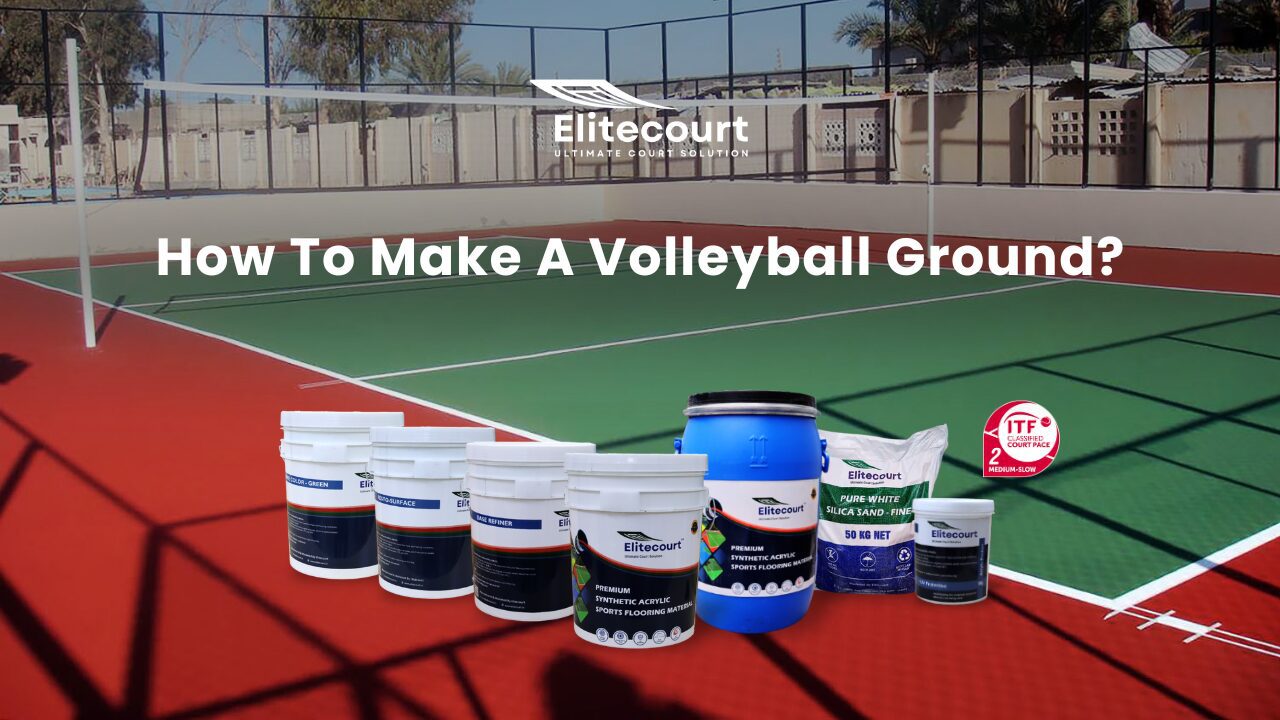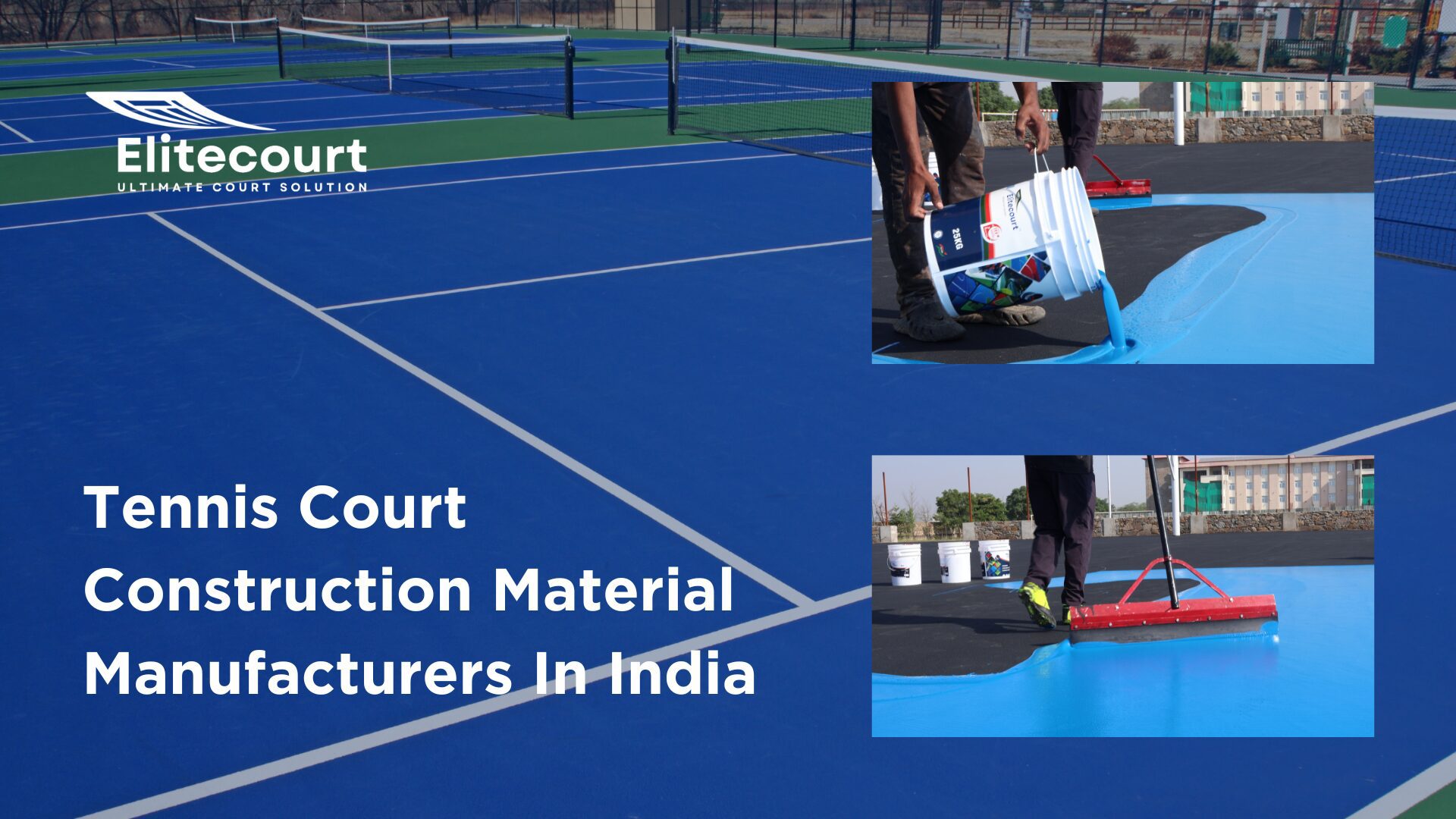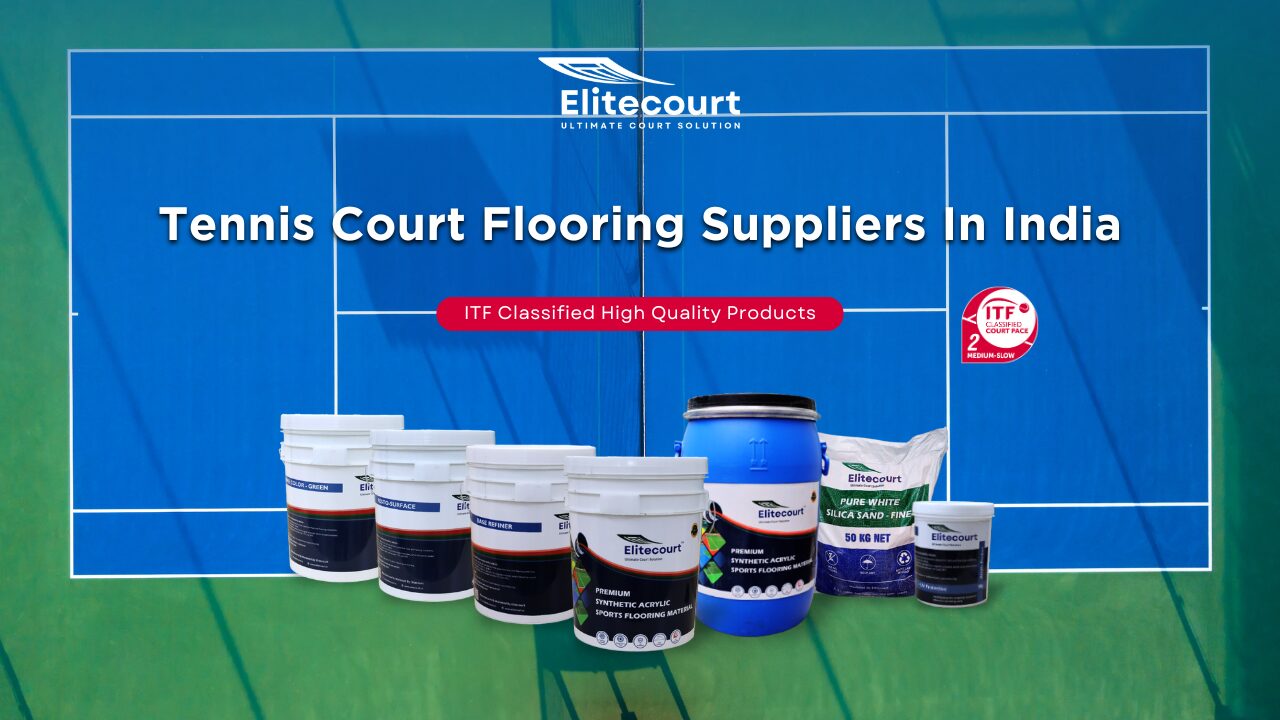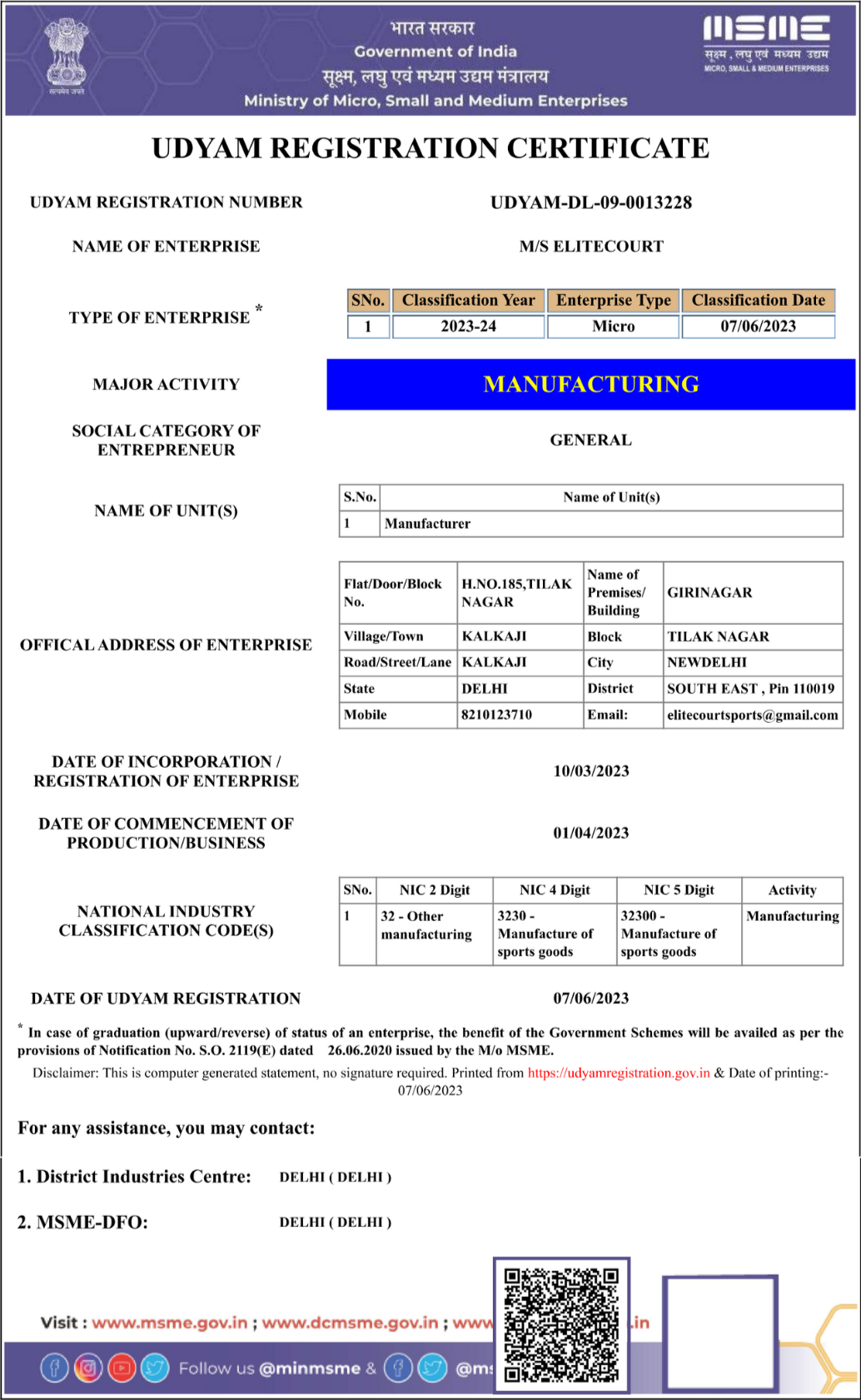Why a Bitumen Base is Key for Acrylic Sports Flooring?
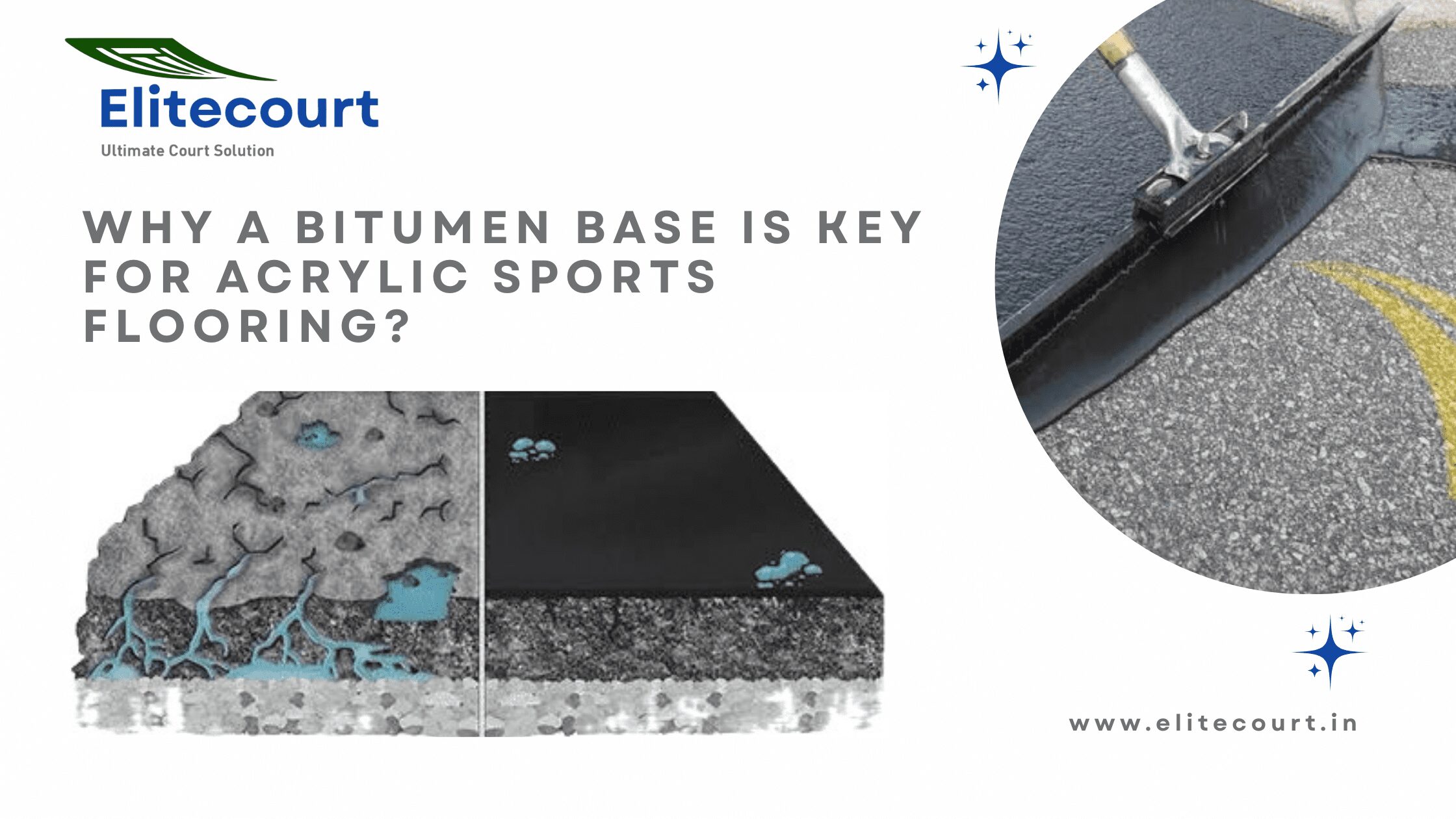
Table of Contents
Introduction
The integrity of the base layer is foundational for the quality and durability of synthetic acrylic sports flooring. Bitumen is a popular choice for this base due to its strength and flexibility. However, for synthetic acrylic tennis court flooring to perform optimally and last for many years, the bitumen base must meet specific technical requirements. This blog will detail why a well-maintained bitumen base is essential, compare it with asphalt bases, and emphasize the critical role of seal coats in achieving a high-quality sports surface.
Types of Bases for Synthetic Acrylic Flooring
Bitumen Base
Characteristics and Benefits
Bitumen bases are favored for their excellent binding properties and ability to create a stable, flexible foundation. They offer several benefits:
- Durability: Bitumen is resilient and can withstand heavy loads and environmental stresses.
- Flexibility: It adjusts to temperature changes and minor ground movements, reducing the risk of cracks.
- Water Resistance: Bitumen is inherently waterproof, preventing issues related to moisture penetration.
Technical Specifications
To ensure the synthetic acrylic flooring performs optimally, the bitumen base must adhere to the following technical specifications:
- Evenness and Undulation: The base should be even with a maximum undulation of 2mm. Excessive undulation can lead to uneven wear and affect the playability of the surface.
- Slope Requirements: The base must have a slope of 1% in any direction (left or right) to facilitate proper drainage and prevent water pooling.
- Undulation Correction: If the base has undulations greater than 2mm, a base refiner should be used to correct these imperfections. This ensures a smooth and stable foundation for the synthetic acrylic layer.
Key Points for Bitumen Base
- Curing Time:
The bitumen base requires a curing period of 20 days to achieve optimal strength and durability.
- Surface Integrity:
Ensure there are no gaps between the aggregate on the top surface of the bitumen base. If gaps are detected, they should be filled by applying a seal coat to the top surface of the bitumen asphalt base.
- Seal Coat Application:
A seal coat must be applied after completing the bitumen surface. This step is essential for protecting the surface and enhancing its longevity.
- Base Thickness:
The base thickness from the ground level should be maintained between 10 to 12 inches to provide adequate support and stability.
- Surface Evenness and Drainage:
The surface of the bitumen base must be even and free of undulations. Additionally, a slope of 1% should be incorporated to facilitate proper water drainage and prevent water accumulation.

Asphalt Base
Comparison with Bitumen Base
While asphalt is also used as a base for sports flooring, it has some distinct differences from bitumen:
- Durability: Bitumen generally offers better long-term durability and flexibility compared to asphalt.
- Maintenance: Asphalt may require more frequent maintenance and repairs due to its susceptibility to cracking and degradation over time.
- Cost: Asphalt is often less expensive initially but may incur higher maintenance costs compared to bitumen.
Comparison of Quality and Longevity
Opting for a lower-cost option may seem attractive, but it often results in inferior quality:
- Longevity: Cheaper bases without proper seal coats may degrade within 3 years, leading to more frequent repairs and replacements.
- Quality: Lower-priced installations may not meet the necessary technical specifications, resulting in a subpar playing surface.
Importance of Seal Coat
The seal coat plays a critical role in the performance and durability of synthetic acrylic sports flooring:
- Function and Benefits: A seal coat provides a smooth, non-porous surface that enhances the finish of the synthetic acrylic layer. It also protects the base from moisture and environmental damage.
- Impact on Surface Finish: Without a seal coat, the synthetic acrylic flooring may not achieve the desired smoothness and finish, affecting both aesthetics and playability.
Ensuring Longevity of Synthetic Acrylic Courts
Adhering to Technical Specifications
To ensure your synthetic acrylic court lasts more than 10 years, it’s crucial to adhere to the specific technical requirements for the bitumen base. Proper installation and maintenance of the base will support the longevity and performance of the flooring.
Maintaining and Monitoring the Base
Regular monitoring and maintenance of the base layer are essential. Address any issues promptly to prevent damage and maintain the quality of the synthetic acrylic flooring.
Conclusion
The condition of the bitumen base is pivotal for the success of synthetic acrylic sports flooring. Adhering to technical specifications, including evenness, slope, and undulation correction, ensures a high-quality foundation. Investing in a proper seal coat further enhances the durability and performance of the flooring. By understanding these factors, you can make informed decisions and achieve a long-lasting, top-notch sports surface.
FAQs
Why is it important for the bitumen base to be even with a maximum of 2mm undulation?
An even base with minimal undulation ensures a smooth and consistent synthetic acrylic surface, reducing the risk of uneven wear and potential playability issues.
How does the slope requirement affect the performance of the synthetic acrylic court?
A 1% slope ensures proper drainage, preventing water pooling and potential damage to the court surface. It helps maintain the quality and playability of the flooring.
What happens if the base has more than 2mm undulation?
Excessive undulation can lead to an uneven synthetic acrylic surface, which may affect playability and cause premature wear. Using a base refiner is essential to correct these imperfections.
How does the seal coat contribute to the longevity of synthetic acrylic flooring?
The seal coat provides a smooth, protective layer that enhances the surface finish and shields the base from moisture and environmental damage, extending the flooring’s lifespan.
What are the differences between bitumen and asphalt bases for sports flooring?
Bitumen bases generally offer better durability, flexibility, and water resistance compared to asphalt. While asphalt may be less expensive initially, it may require more frequent maintenance and repairs.

